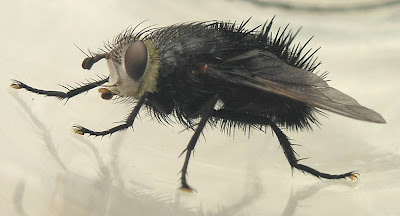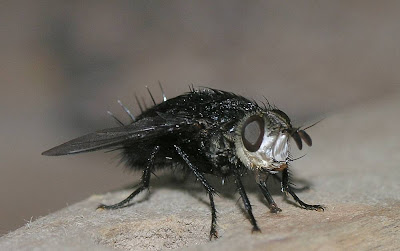
In general, most tachinid flies are relatively large and bristly. They often mimic wasp or bees.

Adult tachinids feed on pollen and nectar. Larvae are parasites, preying on other insects -- often caterpillars. Most tachinids deposit their eggs directly on the body of their host, and it is not uncommon to see caterpillars with several tachinid eggs on them. Upon hatching the larva usually burrows into its host and feeds internally. When fully developed it leaves the host and pupates nearby. Larvae of Genus Peleteria prey Lepidoptera (butterflies and moths).

There are 1,345 species in 303 genera of tachinid flies in North America. They can be found practically anywhere and everywhere. Tachinids are often abundant on sunny hilltops looking for mates.
Information source: BugGuide
.




